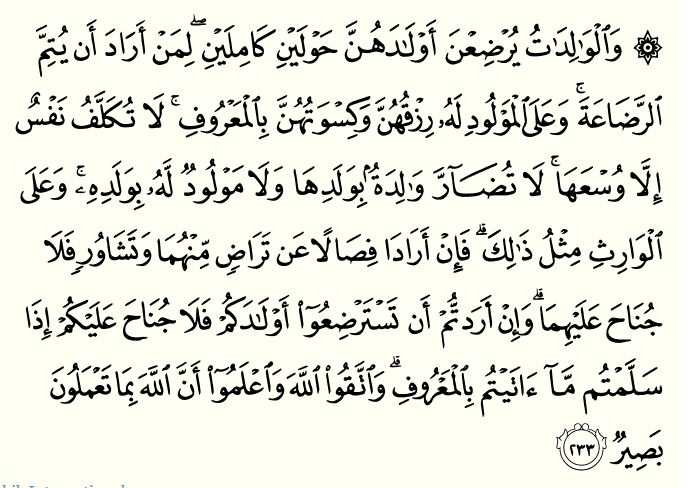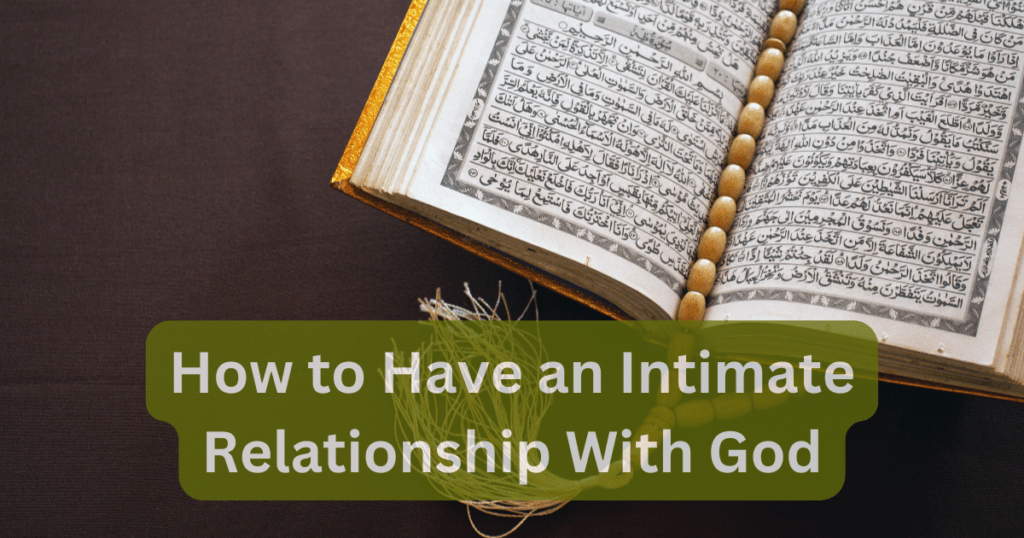Explore 11 essential Sunnahs regarding wives in Islam, offering guidance on marital relations and fostering a harmonious relationship between spouses. In Islam, the treatment of wives is guided by the teachings and practices of the Prophet Muhammad (peace be upon him). These practices, known as Sunnah, emphasize kindness, respect, and compassion. Here are some key Sunnahs regarding wives in Islam:
1. Kind and Respectful Treatment
Prophet Muhammad emphasized the importance of honoring the rights of wives, including providing for their financial needs, offering emotional support, and treating them with kindness and respect. The Prophet Muhammad (PBUH) emphasized the importance of treating wives with kindness and respect. Here are key Sunnahs that highlight the importance of kind and respectful treatment of wives:
- Gentle Speech:
- Prophet Muhammad always spoke to his wives with kindness and gentleness. Using gentle and respectful language is essential for fostering a loving and harmonious marital relationship.
- Affectionate Gestures:
- The Prophet was affectionate towards his wives. Simple gestures like hugs, kisses, and expressions of love convey warmth and affection, strengthening the emotional bond between spouses.
- Respecting Her Feelings:
- The Prophet respected the feelings and emotions of his wives. Acknowledging and validating their feelings demonstrates empathy and fosters a sense of understanding and appreciation.
- Listening Attentively:
- The Prophet listened attentively to his wives. Giving undivided attention when she speaks shows respect and communicates that her opinions and feelings are valued.
- Expressing Appreciation:
- The Prophet regularly expressed appreciation for his wives’ efforts and contributions. Showing gratitude and acknowledging her contributions fosters mutual respect and strengthens the marital bond.
- Providing Emotional Support:
- The Prophet provided emotional support to his wives during times of difficulty. Being a source of comfort and solace during challenging times demonstrates care and compassion.
- Consulting Her Opinion:
- The Prophet frequently consulted his wives on various matters. Seeking her opinion and involving her in decision-making demonstrates respect for her intellect and insights.
- Respecting Her Privacy:
- The Prophet respected the privacy of his wives. Respecting her personal space and boundaries is crucial for building trust and ensuring a sense of security in the relationship.
- Encouraging Her Independence:
- The Prophet encouraged his wives’ independence and autonomy. Supporting her pursuits and respecting her individuality strengthens her sense of self-worth and dignity.
- Avoiding Harshness:
- The Prophet condemned harshness and cruelty towards wives. Treating her with kindness and compassion, even in moments of disagreement, maintains a loving and respectful atmosphere in the household.
- Leading by Example:
- The Prophet led by example in his treatment of wives. His kindness, respect, and compassion serve as a model for all Muslim men to emulate in their relationships with their wives.
“The best of you are those who are best to their wives, and I am the best of you to my wives.”
(Tirmidhi)
2. Fair and Just Treatment
The Prophet practiced consultation with his wives on various matters, demonstrating the importance of mutual decision-making and respecting a wife’s opinions and input. A husband should be fair and just to his wife, especially if he has more than one. The Prophet (PBUH) was known for his fairness among his wives. Here are key Sunnahs that highlight the importance of fair and just treatment of wives:
- Equal Treatment:
- Prophet Muhammad emphasized treating all his wives equally. He ensured that each wife received equal time, attention, and resources, demonstrating the importance of impartiality in marriage.
- Avoiding Favoritism:
- The Prophet was careful to avoid favoritism. He treated each wife with equal respect and consideration, ensuring that no one felt neglected or less valued.
- Fulfilling Rights:
- The Prophet stressed the importance of fulfilling the rights of wives. He made sure that their financial, emotional, and social rights were met, reflecting the comprehensive nature of fair treatment in Islam.
- Listening to Concerns:
- The Prophet listened to the concerns and grievances of his wives attentively. Addressing their issues and resolving conflicts fairly is crucial for maintaining harmony and trust in marriage.
- Encouraging Fairness in Disputes:
- The Prophet encouraged resolving disputes with fairness. He advocated for just and unbiased approaches to conflict resolution, ensuring that both parties felt heard and respected.
- Respecting Individuality:
- The Prophet respected the individuality and personal space of his wives. Recognizing and valuing each wife’s unique personality and preferences is essential for fair treatment.
- Providing for Needs Equally:
- The Prophet ensured that the needs of his wives were met equally. Whether it was financial support, emotional care, or social engagement, he provided for each wife without discrimination.
- Maintaining Dignity:
- The Prophet maintained the dignity and honor of his wives. He treated them with utmost respect and ensured that their dignity was preserved in all interactions.
- Sharing Responsibilities:
- The Prophet shared household responsibilities and chores. Fair distribution of domestic duties fosters a sense of partnership and reduces the burden on any one spouse.
- Upholding Justice in All Matters:
- The Prophet upheld justice in all matters, big or small. His commitment to justice served as a model for ensuring that all family members are treated fairly and equitably.
- Creating a Supportive Environment:
- The Prophet created a supportive and nurturing environment for his wives. Ensuring that the home is a place of peace, support, and mutual respect is key to fair and just treatment.
“If a man has two wives and he inclines towards one of them, he will come on the Day of Resurrection with one of his sides leaning.”
(Abu Dawood)
3. Providing for the Family
Expressing gratitude towards one another strengthens the bond between spouses. The Prophet frequently praised and thanked his wives for their efforts and contributions, fostering a culture of appreciation and acknowledgment. Islam places the responsibility of providing for the family on the husband. This includes financial support, food, clothing, and shelter. Here are key Sunnahs that highlight the principles of providing for the family:
- Ensuring Financial Security:
- Prophet Muhammad emphasized the responsibility of ensuring financial security for one’s family. He encouraged men to work diligently and provide adequately for their wives and children, ensuring their basic needs are met.
- Being Generous:
- The Prophet advocated for generosity towards one’s family. He believed in providing more than just the bare necessities, ensuring that the family lives comfortably and with dignity.
- Providing Halal Sustenance:
- The Prophet stressed the importance of earning and providing halal (lawful) sustenance. Ensuring that the income and the food provided to the family are halal is crucial in maintaining a blessed and harmonious household.
- Being Attentive to Needs:
- The Prophet was attentive to the needs of his family. He understood and responded to their financial and emotional requirements, ensuring their well-being and happiness.
- Balancing Work and Family Life:
- The Prophet maintained a balance between his responsibilities and spending quality time with his family. Ensuring that work commitments do not overshadow family time is essential for a healthy and fulfilling family life.
- Encouraging Financial Independence:
- The Prophet supported his wives’ financial independence and allowed them to manage their own wealth. Encouraging and respecting a wife’s financial autonomy fosters mutual respect and trust in the relationship.
- Avoiding Extravagance:
- The Prophet advocated for moderation and warned against extravagance. He encouraged spending wisely and saving for the future, ensuring long-term financial stability for the family.
- Providing Emotional Support:
- Alongside financial support, the Prophet provided emotional support to his family. He was present, caring, and involved in their lives, ensuring a balanced approach to family responsibilities.
- Sharing Responsibilities:
- The Prophet participated in household chores and responsibilities. Sharing domestic duties fosters a sense of partnership and reduces the burden on any one family member.
- Educating the Family:
- The Prophet placed great emphasis on education. He ensured that his family had access to knowledge and learning opportunities, which is essential for their personal and spiritual development.
- Leading by Example:
- The Prophet led by example in all aspects of life, including providing for his family. His dedication, kindness, and responsibility set a precedent for all Muslims to follow in ensuring the well-being of their families.
“And upon the father is their provision and their clothing according to what is acceptable.”
(Quran 2:233)

4. Compassion and Gentleness
Effective communication is key to a successful marriage. The Prophet engaged in meaningful conversations with his wives, listening attentively to their concerns and addressing any issues with patience and understanding. The Prophet Muhammad (PBUH) demonstrated compassion and gentleness towards his wives. He encouraged men to be gentle and avoid harshness. Here are key Sunnahs that emphasize the importance of compassion and gentleness in marriage:
- Showing Affection:
- Prophet Muhammad was known for his affectionate behavior towards his wives. Simple acts of affection, like gentle touches, kind words, and loving gestures, are essential in demonstrating care and tenderness.
- Speaking Kindly:
- The Prophet always spoke to his wives with kindness and respect. Using gentle and considerate language helps in maintaining a positive and loving atmosphere in the relationship.
- Offering Comfort:
- The Prophet provided comfort to his wives in times of need. Being a source of solace and reassurance is crucial for building trust and emotional security in marriage.
- Being Patient:
- Patience was a key characteristic of the Prophet’s interactions with his wives. He exhibited patience during disagreements and misunderstandings, which helped in resolving conflicts peacefully and maintaining harmony.
- Supporting Her Emotions:
- The Prophet was attentive to the emotional well-being of his wives. He showed empathy and understanding towards their feelings, validating their emotions and offering support.
- Avoiding Harshness:
- The Prophet condemned any form of harshness or cruelty towards wives. He encouraged treating them with utmost gentleness and kindness, reflecting the compassionate nature of Islam.
- Engaging in Playfulness:
- The Prophet engaged in playful activities with his wives, such as racing and joking. Playfulness adds joy and light-heartedness to the relationship, strengthening the bond between spouses.
- Respecting Her Dignity:
- The Prophet respected the dignity and honor of his wives. He ensured that they were treated with respect and their dignity was upheld in all circumstances.
- Listening Actively:
- The Prophet was a great listener. He listened attentively to his wives, making them feel heard and valued. Active listening fosters effective communication and understanding in a marriage.
- Offering Praise:
- The Prophet regularly praised his wives for their qualities and achievements. Genuine praise and compliments can boost self-esteem and reinforce feelings of appreciation and love.
- Providing Reassurance:
- The Prophet provided constant reassurance to his wives, particularly during difficult times. Reassurance helps in alleviating worries and strengthens the emotional bond between spouses.
“Fear Allah concerning women! Verily you have taken them on the strength of Allah’s covenant, and intercourse with them has been made lawful unto you by words of Allah.”
(Muslim)
5. Emotional Support and Understanding
Respecting each other’s privacy is crucial in a marriage. The Prophet respected the privacy of his wives and refrained from intruding into their personal space without permission. A husband should provide emotional support and understanding to his wife. The Prophet (PBUH) listened to his wives and was patient with them. Here are key Sunnahs that emphasize the importance of emotional support and understanding in marriage:
- Listening Attentively:
- The Prophet Muhammad was known for his attentive listening. He gave his full attention when his wives spoke, demonstrating the importance of listening to understand and empathize with their feelings and concerns.
- Offering Comfort and Reassurance:
- The Prophet provided comfort and reassurance to his wives in times of distress or difficulty. Being a source of emotional strength and comfort is essential in nurturing a supportive relationship.
- Showing Compassion:
- Compassion was a hallmark of the Prophet’s interactions with his wives. He showed deep compassion and empathy, understanding their emotions and responding with kindness and care.
- Being Patient and Forgiving:
- The Prophet exhibited immense patience and forgiveness. He encouraged forgiving mistakes and resolving conflicts with patience, fostering a harmonious and supportive marital environment.
- Affectionate Touch:
- The Prophet often used affectionate touch to express love and support. Simple gestures like holding hands, hugging, and gentle touches can convey emotional support and strengthen the marital bond.
- Encouraging Open Communication:
- The Prophet promoted open and honest communication. He encouraged his wives to express their thoughts and feelings freely, ensuring that their emotional needs were acknowledged and addressed.
- Sharing in Joys and Sorrows:
- The Prophet shared in the joys and sorrows of his wives. Being present in both happy and challenging times reinforces emotional support and understanding in the relationship.
- Providing Reassurance During Hard Times:
- The Prophet provided reassurance and hope during difficult times. Supporting each other through hardships and offering emotional strength is vital for a resilient marriage.
- Respecting Her Feelings:
- The Prophet respected the feelings and emotions of his wives. Acknowledging and validating each other’s feelings is crucial for emotional support and understanding.
- Encouraging Her Growth:
- The Prophet encouraged his wives’ personal and spiritual growth. Supporting and encouraging each other’s development fosters mutual respect and understanding.
- Creating a Safe Emotional Space:
- The Prophet created a safe and supportive environment where his wives felt comfortable sharing their emotions. Ensuring that your spouse feels safe to express themselves is key to emotional intimacy.
“The believers who show the most perfect Faith are those who have the best behavior, and the best of you are those who are the best to their wives.”
(Tirmidhi)
6. Mutual Respect and Consultation
Patience and forgiveness are essential virtues in any relationship. The Prophet displayed immense patience and forgiveness towards his wives, overlooking their mistakes and shortcomings with compassion and understanding. The Prophet (PBUH) consulted his wives on various matters and valued their opinions, demonstrating mutual respect and partnership. Here are key Sunnahs that highlight the principles of mutual respect and consultation with wives:
- Respecting Her Opinions:
- Prophet Muhammad always respected the opinions of his wives. He valued their perspectives and often sought their advice on various matters, demonstrating the importance of considering and valuing a wife’s viewpoints.
- Involving Her in Decisions:
- The Prophet frequently consulted his wives in decision-making processes. Whether it was personal or community matters, he included them in discussions, highlighting the significance of mutual consultation (Shura) in a marriage.
- Acknowledging Her Rights:
- The Prophet emphasized the importance of acknowledging and upholding the rights of wives. He treated his wives with fairness and justice, ensuring their rights were respected and protected.
- Expressing Appreciation:
- The Prophet regularly expressed appreciation for his wives’ contributions and efforts. Acknowledging and appreciating each other’s roles and sacrifices fosters mutual respect and gratitude.
- Communicating Respectfully:
- Effective and respectful communication was a hallmark of the Prophet’s interactions with his wives. He avoided harsh words and spoke to them with kindness and gentleness, setting a precedent for respectful dialogue.
- Encouraging Open Dialogue:
- The Prophet encouraged open and honest communication with his wives. He created an environment where they felt comfortable expressing their thoughts and feelings, promoting transparency and trust.
- Providing Emotional Support:
- The Prophet was attentive to the emotional needs of his wives. He provided them with comfort, support, and understanding, emphasizing the importance of emotional well-being in a marital relationship.
- Promoting Equality:
- The Prophet advocated for equality in the marital relationship. He treated his wives equally and fairly, ensuring that each one felt valued and respected, thereby promoting a balanced and just relationship.
- Sharing Responsibilities:
- The Prophet shared household responsibilities with his wives. This practice underscored the importance of partnership and cooperation in managing household duties, reflecting mutual respect and shared effort.
- Being Patient and Forgiving:
- Patience and forgiveness were key aspects of the Prophet’s approach to marriage. He encouraged forgiving mistakes and resolving conflicts peacefully, avoiding resentment and anger.
- Maintaining Dignity and Respect in Disputes:
- Even during disagreements, the Prophet maintained dignity and respect towards his wives. He addressed conflicts with patience and wisdom, ensuring that respect was upheld even in challenging times.
“And consult them in the matter. Then when you have taken a decision, put your trust in Allah.”
(Quran 3:159)

7. Intimacy and Romance
Giving gifts and surprises is a beautiful way to express love and appreciation. The Prophet would often surprise his wives with gifts, demonstrating thoughtfulness and generosity in nurturing the relationship. The Prophet (PBUH) encouraged intimacy and romance between spouses. He showed affection and love towards his wives.
- Expressing Love Verbally:
- The Prophet Muhammad often expressed his love verbally to his wives. Simple, heartfelt words like “I love you” can strengthen the emotional bond between spouses and make them feel cherished and valued.
- Gentle Physical Touch:
- The Prophet emphasized the importance of gentle physical touch. Holding hands, hugging, and other forms of affectionate touch are essential in expressing love and maintaining intimacy in marriage.
- Spending Quality Time Together:
- The Prophet made time to be with his wives, engaging in activities they enjoyed. Spending quality time together helps in building a strong connection and understanding between spouses.
- Sharing Meals:
- Sharing meals was a common practice of the Prophet with his wives. Eating together fosters a sense of togetherness and provides an opportunity for meaningful conversations.
- Gifting and Surprises:
- The Prophet would often surprise his wives with gifts. Thoughtful gestures, no matter how small, can make a significant impact and show that you care and think about your spouse.
- Playfulness and Humor:
- The Prophet was known for his playful and humorous nature with his wives. Light-heartedness and laughter can enhance the joy and warmth in a marriage.
- Complimenting Each Other:
- The Prophet regularly complimented his wives on their appearance and actions. Genuine compliments can boost self-esteem and reinforce feelings of appreciation and love.
- Showing Appreciation:
- The Prophet made a point to show appreciation for his wives’ efforts and contributions. Acknowledging and appreciating each other’s roles and sacrifices fosters mutual respect and gratitude.
- Respecting Each Other’s Needs:
- The Prophet was attentive to the needs and desires of his wives. Understanding and respecting each other’s needs, both emotional and physical, is crucial for a healthy and intimate relationship.
- Creating Special Moments:
- The Prophet created special moments for his wives, such as private time together after prayer. Creating such moments of exclusivity can strengthen the bond and keep the romance alive.
- Praying Together:
- Praying together can also be an intimate act, as it connects the couple spiritually. Sharing spiritual moments can deepen the emotional and spiritual connection between spouses.
“When one of you has intercourse with his wife, let him be true to her. If he attains his pleasure before her, he should not hurry her away until she also attains her pleasure.”
(Abu Ya’la)
8. Equality in Rights
The concept of equality in rights between husbands and wives is deeply embedded in the teachings of the Prophet Muhammad (peace be upon him). The Prophet’s example and the Sunnah provide a framework for fostering a balanced and respectful marital relationship. Islam grants women rights and recognizes their individuality and humanity. Husbands should acknowledge these rights and treat their wives as equals. Here are some key Sunnahs that highlight the importance of equality in rights for wives:
- Respecting Her Individuality:
- The Prophet Muhammad emphasized the importance of respecting a wife’s individuality and personal space. He treated his wives as individuals with their own rights, feelings, and needs, ensuring they were not overshadowed or oppressed.
- Equal Share of Time:
- The Prophet made a conscious effort to spend equal time with each of his wives. This practice ensured that each wife felt valued and loved, thereby promoting fairness and equality in the marriage.
- Financial Rights:
- The Prophet was very particular about fulfilling the financial rights of his wives. He ensured that they had sufficient provision and that their financial needs were met, reflecting the importance of economic equality in a marriage.
- Participation in Decision-Making:
- The Prophet often consulted his wives on various matters, both personal and communal. This practice highlighted the significance of involving wives in decision-making processes, ensuring their voices were heard and respected.
- Fair Treatment:
- The Prophet’s treatment of his wives was characterized by fairness and justice. He discouraged favoritism and ensured that each wife received fair treatment in terms of emotional support, time, and resources.
- Mutual Respect and Kindness:
- Mutual respect and kindness were cornerstones of the Prophet’s relationships with his wives. He treated them with the utmost respect and kindness, setting an example for all Muslims to follow.
- Right to Education:
- The Prophet encouraged the education of women, including his wives. He believed in the importance of knowledge and education for all, irrespective of gender, and ensured that his wives had access to learning.
- Emotional Support:
- Providing emotional support and understanding was a key aspect of the Prophet’s interaction with his wives. He was attentive to their emotional needs and offered comfort and reassurance.
- Physical and Emotional Safety:
- The Prophet emphasized the importance of ensuring the physical and emotional safety of wives. He condemned any form of harm or abuse and advocated for the protection and well-being of women.
- Encouragement of Self-Expression:
- The Prophet encouraged his wives to express themselves freely. He valued their opinions and encouraged open communication, fostering an environment where they felt safe to share their thoughts and feelings.
- Shared Responsibilities:
- The Prophet shared household responsibilities with his wives. This practice underscored the importance of partnership and cooperation in managing household duties, reflecting a balanced approach to domestic life.
“And women shall have rights similar to the rights against them, according to what is equitable; but men have a degree [of responsibility] over them.”
(Quran 2:228)

9. Avoiding Harm and Abuse
Islam strictly prohibits any form of harm or abuse towards wives. The Prophet (PBUH) never hit or abused his wives. Here are some essential Sunnahs that emphasize the importance of maintaining a safe, loving, and respectful environment for wives:
- Prohibition of Physical Harm:
- The Prophet explicitly forbade physical harm towards wives. He condemned any form of domestic violence, emphasizing that a true Muslim should never harm their spouse physically.
- Kind Treatment:
- Kindness is a cornerstone of the Prophet’s teachings. He treated his wives with utmost kindness and compassion, setting a powerful example for all Muslims to follow.
- Verbal Respect:
- The Prophet Muhammad always spoke to his wives with respect and gentleness. He avoided harsh words and encouraged his followers to speak kindly to their spouses.
- Emotional Support:
- Providing emotional support and understanding was a key aspect of the Prophet’s relationship with his wives. He was attentive to their emotional needs and offered comfort and reassurance, fostering a nurturing environment.
- Encouragement and Appreciation:
- The Prophet regularly praised and appreciated his wives, acknowledging their efforts and contributions. This practice helped in building their self-esteem and reinforcing a positive, supportive relationship.
- Fairness and Justice:
- The Prophet was known for his fairness and justice. He treated his wives equitably, ensuring that each one felt valued and respected, and he discouraged favoritism or unjust behavior.
- Patience and Forgiveness:
- Patience and forgiveness were fundamental to the Prophet’s approach to marital relationships. He encouraged forgiving mistakes and resolving conflicts peacefully, avoiding resentment and anger.
- Promoting a Safe Environment:
- The Prophet promoted a home environment free from fear and intimidation. He ensured that his wives felt safe and secure, both physically and emotionally.
- Consultation and Inclusion:
- The Prophet often consulted his wives on various matters, showing the importance of including them in decision-making processes and valuing their opinions.
- Respecting Personal Space:
- Respecting personal space and privacy was another significant aspect of the Prophet’s treatment of his wives. He acknowledged their need for personal time and space, promoting a balanced and respectful relationship.
- Addressing Disputes Peacefully:
- The Prophet advocated for resolving disputes and disagreements peacefully and calmly. He emphasized the importance of communication and understanding in overcoming marital conflicts.
“The strong man is not the one who can use the force of physical strength, but the one who controls his anger.”
(Bukhari)
10. Praying Together
Praying together is encouraged in Islam as a way to strengthen the bond between spouses and to seek blessings from Allah together. Here are some key Sunnahs regarding praying together with wives:
- Enhancing Spiritual Connection:
- Praying together enhances the spiritual connection between spouses. It aligns their hearts and intentions towards a common goal of seeking Allah’s blessings and guidance.
- Building Unity:
- Engaging in prayer together fosters a sense of unity and togetherness. It reinforces the partnership in the journey of faith and life.
- Promoting Mutual Support:
- Praying together allows couples to support each other spiritually. It encourages mutual growth in faith and provides an opportunity to share in each other’s spiritual experiences.
- Strengthening Emotional Bond:
- The act of praying side by side strengthens the emotional bond between spouses. It creates a moment of peace, reflection, and shared devotion that deepens their emotional connection.
- Following the Prophet’s Example:
- Prophet Muhammad often prayed with his wives. This practice serves as a model for Muslims to follow, highlighting the importance of shared worship in a marriage.
- Encouraging Consistency in Worship:
- When spouses pray together, it promotes consistency and regularity in worship. It ensures that both partners maintain their prayer routines and hold each other accountable.
- Creating a Peaceful Home Environment:
- Regularly praying together helps in creating a peaceful and spiritually uplifting home environment. It brings tranquility and harmony into the household.
- Offering Collective Supplication:
- Praying together allows couples to make collective supplications for their family, well-being, and future. It strengthens their faith in Allah’s mercy and blessings.
- Instilling Islamic Values in Children:
- When parents pray together, it sets a positive example for their children. It teaches them the importance of prayer and the value of a united family in faith.
- Resolving Conflicts:
- Praying together can be a means to resolve conflicts and misunderstandings. It brings a sense of calm and encourages forgiveness, helping to mend and strengthen the marital relationship.
- Encouraging Patience and Compassion:
- The shared experience of prayer fosters patience, compassion, and understanding. It reminds couples of their duties towards each other and their commitment to living according to Islamic principles.
“When a man wakes his wife up during the night and they pray together, they are written among those who remember Allah often.”
(Abu Dawood)
In Islam, the relationship between husband and wife is highly regarded, with the teachings of Prophet Muhammad (peace be upon him) offering valuable guidance on maintaining a healthy and fulfilling marriage. These Sunnahs regarding wives in Islam that provide insight into fostering love, respect, and compassion within the marital bond. By adhering to these key Sunnahs, a Muslim husband can fulfill his responsibilities and contribute to a harmonious and loving marital relationship, in accordance with Islamic teachings.



